State's dithering dooms bottle businesses
People and nature make Glens Falls area beautiful
Please consider supporting The Front Page with a paid subscription: HERE
Jade Eddy has dealt with live snakes in bags of bottles and cans.
She found a customer’s car keys. She found a lost remote. She found a bottle filled with urine.
Her father, who started their bottle and can redemption business 20 years ago, cut himself so many times she was surprised he kept all of his fingers.
Now, Jade asks customers to put glass bottles back in their original boxes — beer bottles back in the six-packs — when they bring them to MT Returnables at the corner of Luzerne Road and Ohio Avenue in Queensbury.
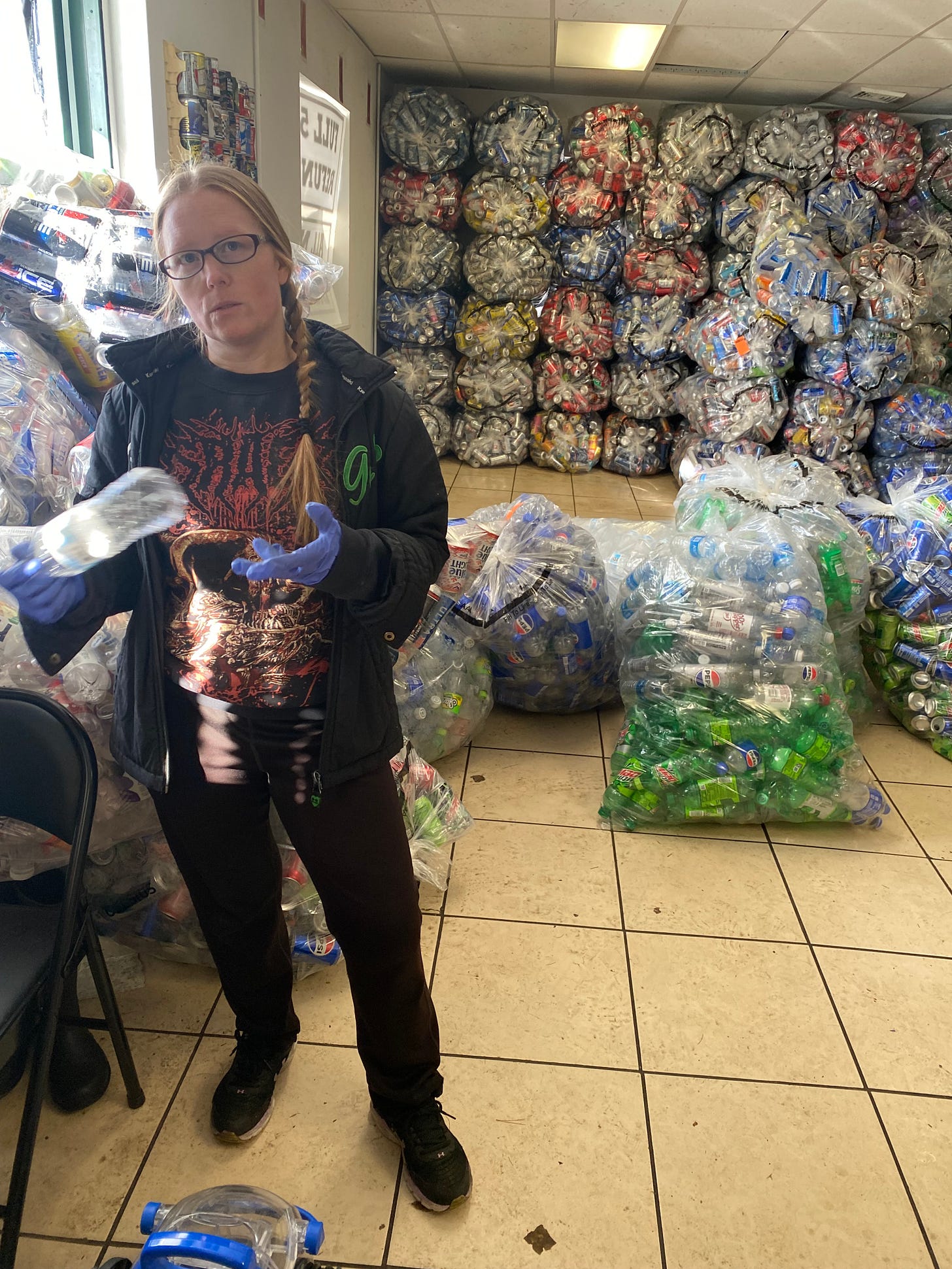
It’s her business now, inherited from her father four years ago when he died in a motorcycle crash. She closed for eight months afterward.
When she reopened, some customers showed up with eight months’ worth of bottles and cans they’d been saving.
“People were significantly generous. I had people donate their entire stimulus checks,” she said.
Boy Scout Troop 99 from South Glens Falls brings her hundreds of thousands of donated containers every year, from which the troop makes tens of thousands of dollars.
The business matters to the community, which is one reason why Eddy has kept it open, although she hasn’t been able to pay herself for seven months, and her savings, too, have vanished into the business.
But if New York fails to increase the handling fee that is her sole source of income, MT Returnables and many of the state’s remaining redemption centers will have to close anyway.
“It’s not in my best interest to stay open,” Eddy said Wednesday. “Part of me is like, pack your bags and walk away.”
Redemption centers can’t raise prices to make more money. The state sets their handling fee, and it hasn’t been raised since 2009, when it was set at 3.5 cents per container.
The NY minimum wage has more than doubled during that time and will go up another 50 cents in January. Other costs have also risen.
In 2022, MT Returnables handled 3.5 million containers and made an after-tax profit of $24,800, Jade said. She had a mortgage at the time, which cost her $19,800, leaving her with $5,000 for the year.
Business has been slowing down since, partly because of the way drinks are being sold. Alcoholic drinks with tonic are sold in single-serving packs of bottles or cans, which aren’t returnable, for example. That means fewer people buying tonic water bottles and cans, which are returnable.
Eddy has gone from employing five people to employing one.
The bottle bill now being dithered over in the state Legislature would classify more containers as returnable and raise the deposit per container from 5 cents to 10. If it passes, the flow of containers will increase at redemption centers and decrease at waste disposal facilities — landfills, trash incinerators and transfer stations. Pollution will go down.
Democratic Assemblywoman Carrie Woerner of Round Lake has put forward a stripped-down “lifeline bill” that would just boost the handling fee — from 3.5 to 5 cents — to save redemption centers.
The state doesn’t pay the handling fee, distributors do, but in a twist that deepens my cynicism about money and politics, the state benefits from the returnable system’s dysfunction.
Millions of dollars goes unredeemed as people throw away returnable bottles and cans. That pool of money originally flowed back to the distributors, until legislators decided in 2009 to channel 80 percent of it into the state’s general fund.
Last year, New York’s cut was about $120 million and the distributors’ about $30 million.
In a further twist, New York puts the first $23 million of its share into the Environmental Protection Fund every year. So the state, the distributors and the environmental lobby all have a stake in NOT making the system more efficient, because the better it works, the more returnables will get redeemed and the smaller that pool of cash will be.
But everything will fall apart without the redemption centers. Grocery stores and other retailers cannot begin to accommodate the volume of containers that redemption centers handle.
To a significant extent, the system has already fallen apart. Last year, more than 140 redemption centers — about 20 percent of the total number in the state — went out of business.
The centers employ an average of about four workers each, Woerner said, which means more than 500 jobs have been lost.
“This is crazy. The state’s paying unemployment to cover those people who are not working. This is a component piece of the system that we count on. We’ve got to fix it,” Woerner said.
Even though Democrats control both legislative chambers, plus the governor’s office, they’ve struggled to agree on the details of a comprehensive new bottle bill. Meanwhile, Woerner’s attempt to at least stop the bleeding has attracted Republican support, including from Sen. Dan Stec of Queensbury and Assemblyman Matt Simpson of Horicon.
The original bottle bill cut the volume of trash going into the public waste disposal system and gave rise to hundreds of redemption centers — new small businesses across New York. It has been a success.
But the Legislature’s failure to keep the bill current is reversing its accomplishments. Without imminent action, plastic and glass bottles and aluminum cans will flood back into the waste stream as business owners like Jade Eddy, after years of hope and toil, are forced to walk away.
Mural City
The multiplication of murals in Glens Falls is a wonderful thing. I particularly like seeing one for the first time, suddenly surprised by its presence. That happened last Sunday (Dec. 8), when Bella and I were driving down Lawrence Street and came upon this collaboration between two well-known local artists, Laura Von Rosk and Jenny Hutchinson, at the corner of Lawrence and Walnut streets.
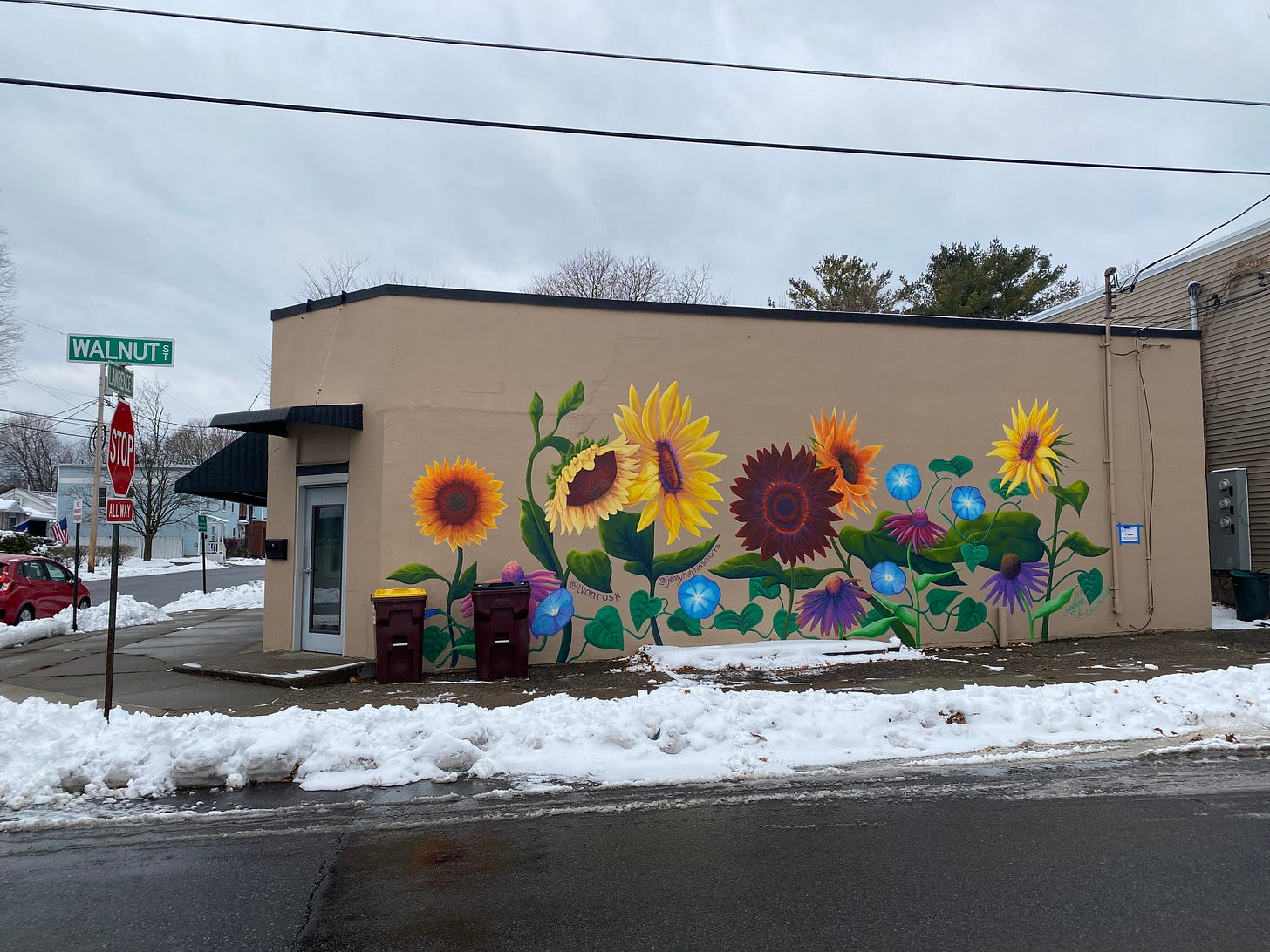
Chilly Beauty
Not many people are out at Hovey Pond or on other local trails these days, but it is still beautiful out there.





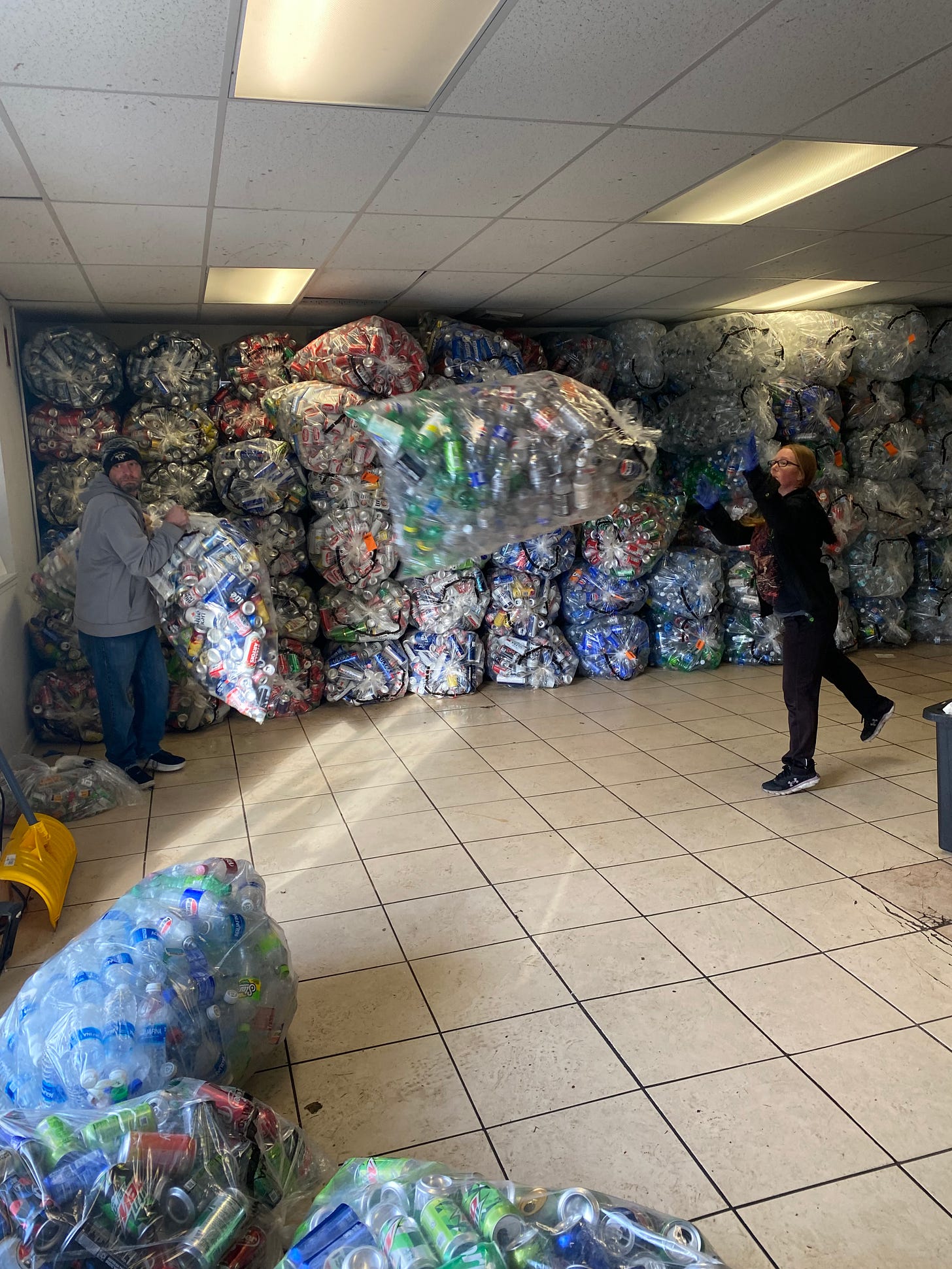
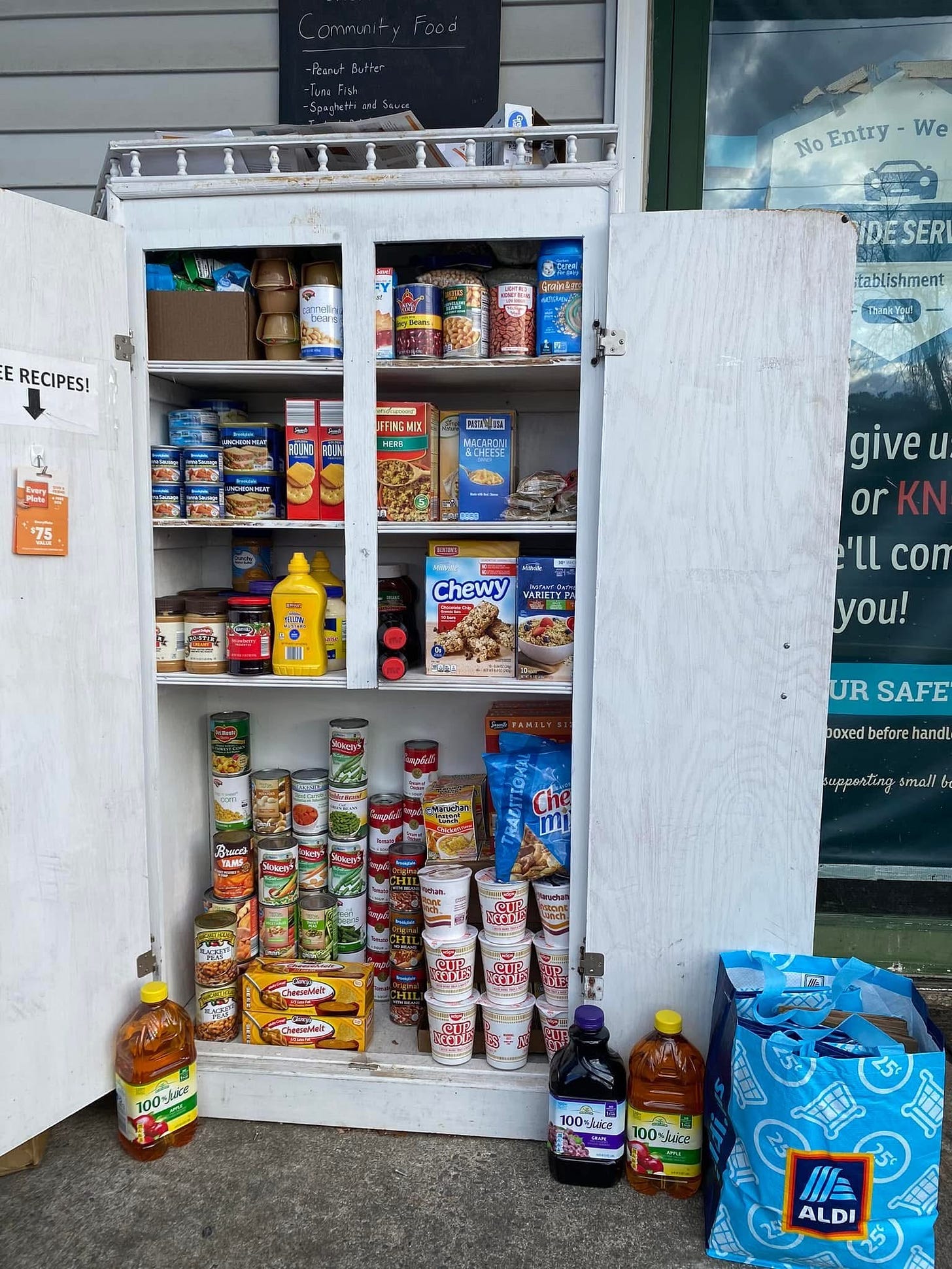
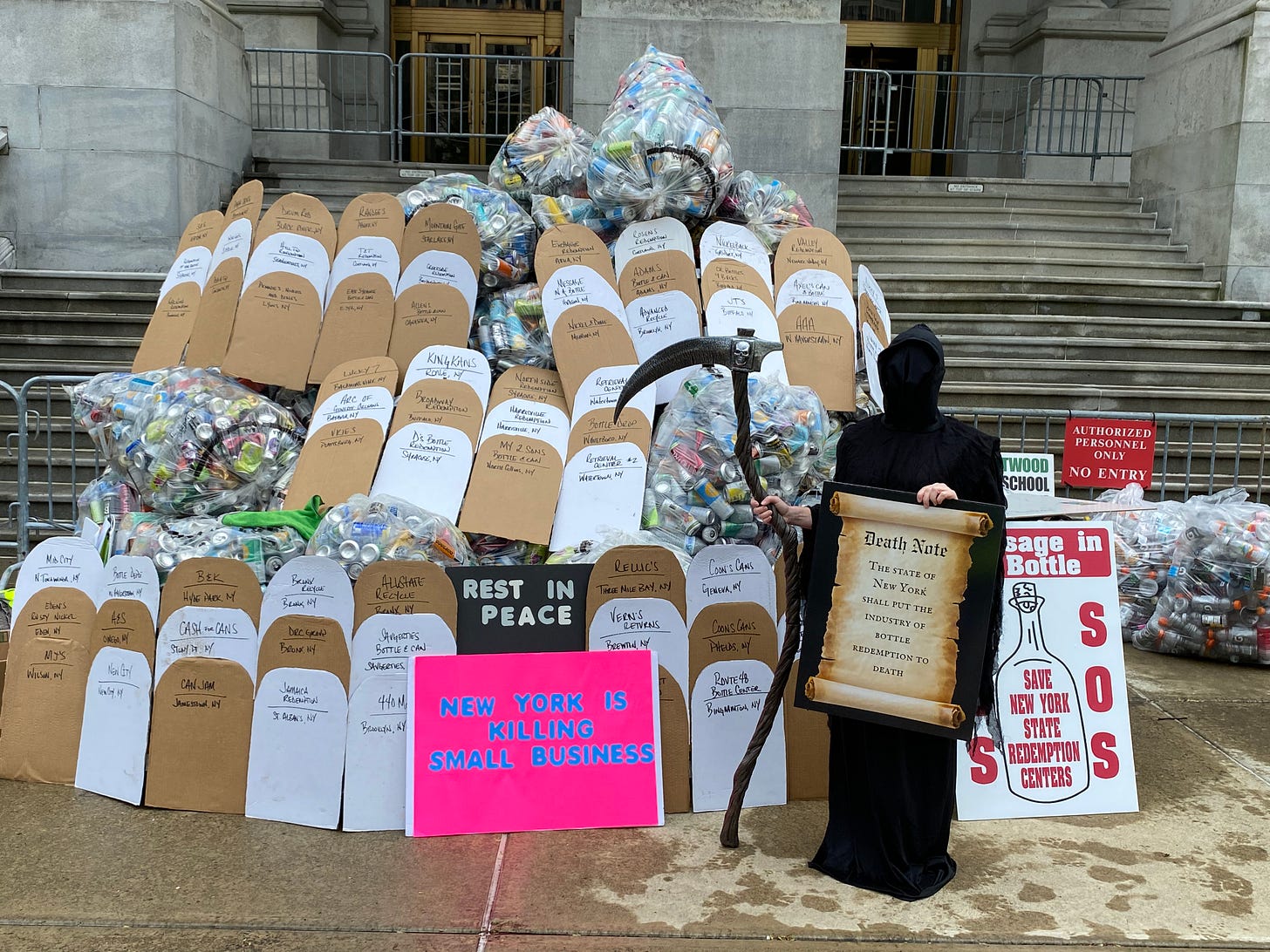

I'm so glad every time I see someone talking about this!
Some of us have made several calls and written in support of Jade but get nowhere.
She works extremely hard and also serves her community in several ways.
She's been on the streets protesting literally to save herself.
I want to know why no one is actually doing anything about this! Where does that money go ... like our lottery money that's supposed to help fund education....why are teachers still buying supplies for their class out of their own pockets?!
I hope everyone here reaches out, calls their representatives, and lobbies for an increase in handling fees and make more bottles recyclable.
Our communities need to help support each other. Especially now in these strange times.
We forget the powers we have when we act as a collective.
Fantastic journalism, Will, about the redemption center and the lag of fees. Was the world simpler then, when we cared about litter and conservation and solutions? Sigh.